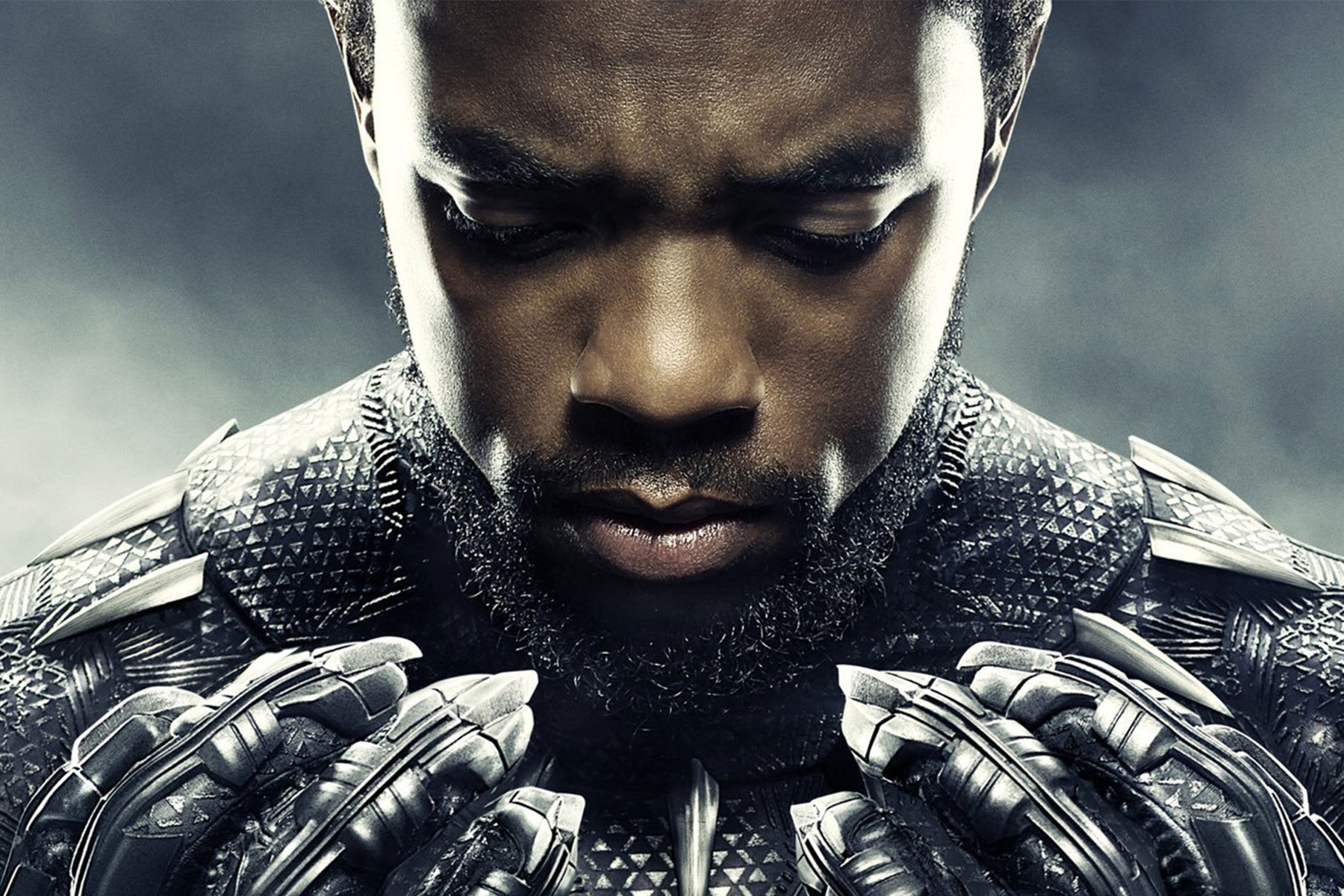“We all wish we had super powers. We all wish we could do more than we can do.” – Stan Lee
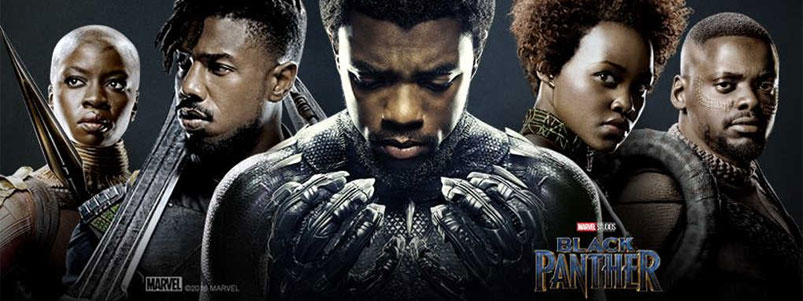
Ten years ago, Iron Man and The Dark Knight reignited the flame of a certain genre’s cinematic fire. Hollywood had found the next red-hot formula for success. This was like Western flicks all over again, but better – it had superheroes.
Studios took it and ran fast. Marvel Comic Universe (MCU) and DC have seen a decade of sustained box office success over the past decade with more than 40 films collectively, with many more slated till 2020. Through it all, the numbers are indicating that we may be more fatigued with the term ‘superhero fatigue’ than we are with superhero movies themselves.
Just this past week, the latest big-budget production to hit the screen made $427 million worldwide over its first four days. Talk-of-the-town Black Panther is now ranked among the highest-grossing big-screen comic adaptations of all time, and it’s just getting started.
What’s fascinating is how we witness this formula win time and time again. On the surface, it’s easy to see why fast-paced action and wonderful imagery doesn’t even need a compelling plot to attract the masses. Kids who saved up for comic books and watched 90s morning cartoons are the adults with purchasing power today – but nostalgia alone doesn’t drive an entire cinematic genre. Why do we keep coming back for more?
Reason #1: Escapism
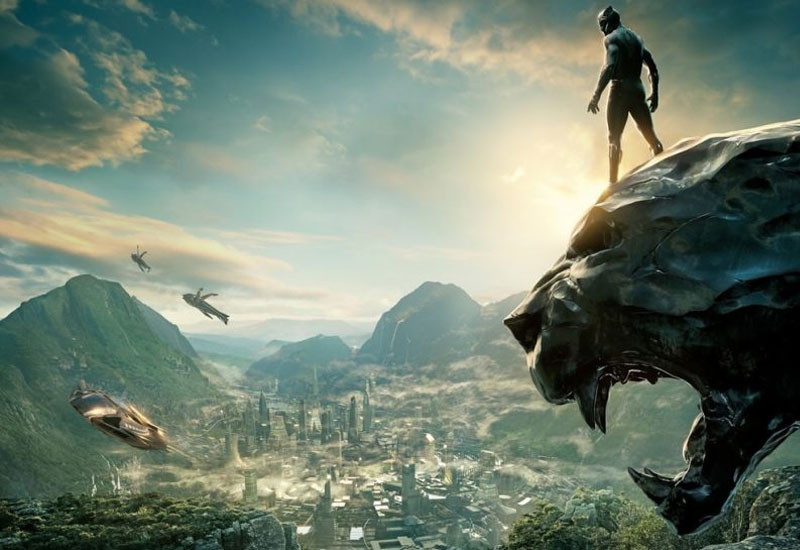
Okay, so this one is no big secret. For two hours, we get to live in a world where the bad guys are always put in their place no matter how strong, evil, or weirdly sexy (shout-out to Michael B. Jordan’s torso, R.I.P. Erik Killmonger). It’s the very reason the entertainment industry remains evergreen – superhero movies depict realities far beyond the average imagination, tied to innately human struggles, triumphs, and emotions.
Interestingly, comic books shot to popularity in the 30s, right through and beyond the Great Depression. Years later, The New York Film Academy points out that the trying economic climate of 2007/2008 coincides with the rise of superhero movies. It states, “Blockbuster epics with tragic endings like Braveheart and Gladiator fell out of fashion, as no one wanted to compound the grim economic situation with an equally depressing movie. Comic-book superhero movies, in which the hero triumphs over evil, became more appealing to the general public.”
Beneath the prying eyes of the world, Black Panther’s fictional African nation of Wakanda is a modern haven. So breath-taking is its beauty that even the villain’s dying words pay tribute to the beauty of Wakanda’s sunset. It’s a far, far cry from the reality it projects to the world, and for that time, cinema-goers can imagine an alternate reality where Africa was never selfishly enslaved or drained of resources.
Reason #2: Action
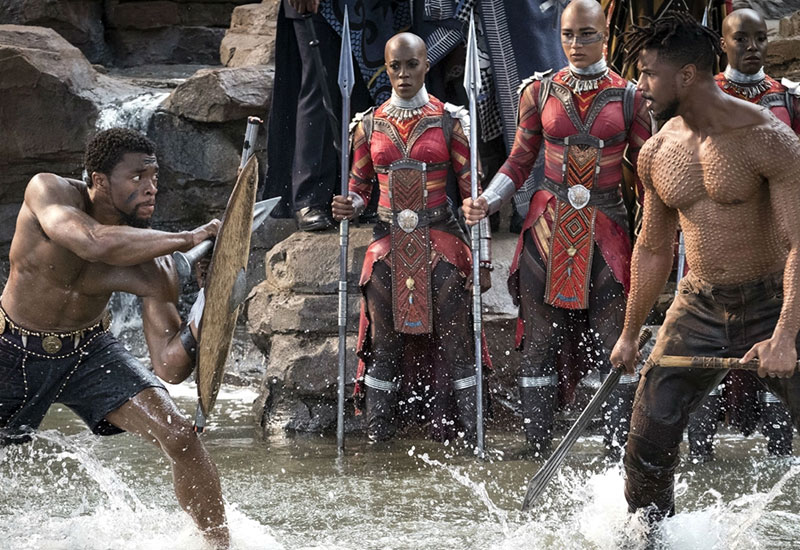
Sci-fi has always played a central role in the evolutionary nature of comic book adaptations. The only difference is that now, we can finally convincingly recreate what was only illustrated before because technology has caught up in the form of motion-capture, CGI, and IMAX.
“That’s one factor, that we can create these whizz-bang visuals to go with the story and ultimately superheroes say a lot about the society we grow up in. Pretty much all the good superheroes have some kind of social commentary about why they are who they are. It teaches values and so it’s a very important thing. On one hand it works on a surface level because it’s super incredible to watch from a visual feast standpoint but on another level it works on a very human, emotional level and I think it makes it fun for us,” opines Aquaman director James Wan, who has had a hand in action and horror.
There’s also that unshakeable appeal of carefully choreographed fight scenes, often as cathartic as they are elaborate. Black Panther is brimming with those, from one-on-one fights for the crown to a tripartite casino rumble.
Chadwick Boseman (T’Challa) reveals that their choreography took cues from Brazilian capoeira, Nigerian dambe boxing, Senagalese wrestling, Zulu stick-fighting, as well as Southeast Asian muay thai and silat. Together, they form a single language of physical power that also speaks for the final, and most important, reason we love superhero flicks.
Reason #3: Representation
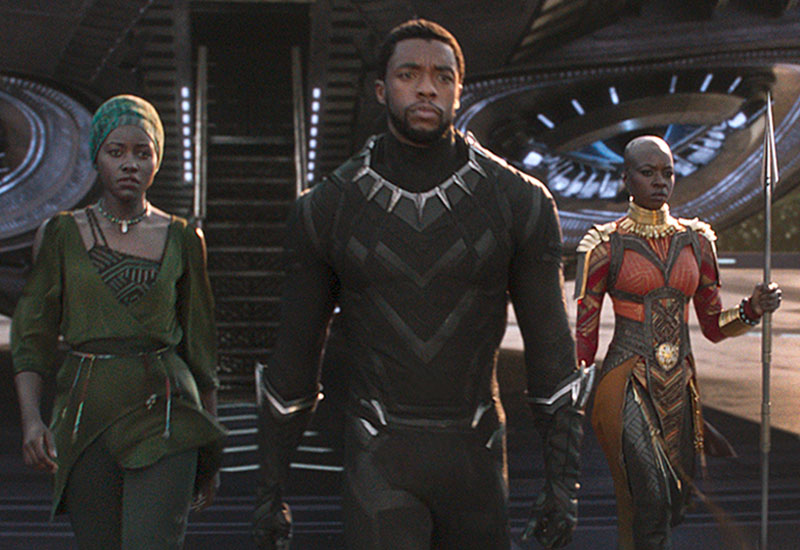
We’re not just looking for crazy stunts and stories. As an audience, the 21st century crowd thirsts to see parts of their own identity weaved into on-screen magic. It can get hard to draw the line between fact and fiction, anyway – they’re so dynamically feeding off each other.
Marvel and DC have recently hit the nail on the head on this point. Wonder Woman and Black Panther, hailed as narratives of minorities in their own right, force us to look into the mirror films so aptly hold against society. Except this time, the gorgeous woman kicks ass and holds a Lasso of Truth, and the African man is a king wearing a suit that literally makes him stronger because it doesn’t kill him.
At WonderCon last year, Wonder Woman director Patty Jenkins explained representation as the crux of this genre’s longevity: “It’s about the method of universal storytelling that all people have that is not of one religion, one thing that America ended up inventing as a way to tell these metaphors about all different kinds of states of being. So to me, they’re the same as the Greek myth, they’re the same as the Roman myth, or religious figures of every religion. These are our common characters that we use to express stories about being a better person, or what you would do if you were faced with various things. So for me, that’s an incredibly powerful thing. There’s a million movies to be told with [these] common characters.”




